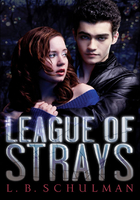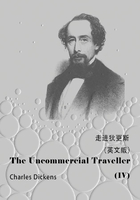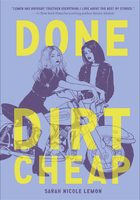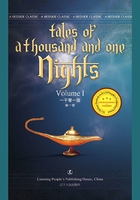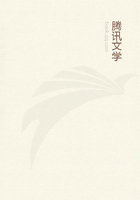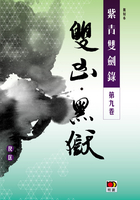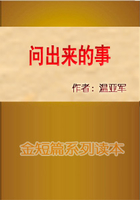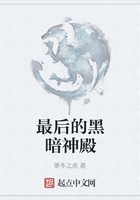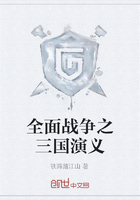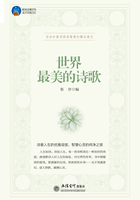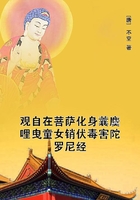Translator's Introduction
Also by Mikhail Bulgakov Published by Grove Press
The Heart of a Dog
Mikhail Bulgakov (1891–1940) was born in Kiev, the son of a professor at the Kiev Theological Academy. He graduated from the Medical College of Kiev University, but after two years of medical practice abandoned medicine for literature.
Playwright, novelist, and short story writer, Bulgakov belonged to that diverse and brilliant group of Russian writers who did not emigrate after the revolution, but became so-called Fellow Travelers, accepting the revolution without joining its active participants, but, above all, insisting on writing in their own way and on their own choice of subjects. This group included such writers as Zamyatin, Zoschenko, Vsevolod Ivanov, Valentin Katayev, Pilnyak, Fedin, and others.
After the extraordinary flowering of literature in a great variety of forms in the post-revolutionary decade, the end of the New Economic Policy and the introduction of the Five-Year Plans in the late 1920s brought about a tightening of the reins in literature and the arts as well. The party's instrument of pressure and coercion at that time was RAPP (Russian Association of Proletarian Writers) under the leadership of the narrow and intolerant zealot Leopold Averbakh. And the persecution and pressures applied to writers to force them into the requisite mold succeeded in destroying all but a very small minority which resisted to the end. Many of the most famous authors became silent or almost silent, either by their own choice, or because their works were barred from publication. The former included Isaac Babel and Olesha. The latter included Zamyatin, Bulgakov, Pilnyak. Some, like Pilnyak, were unable to withstand the pressure and broke down, rewriting their works according to the demands of the party critics and censors. Others, like Zamyatin and Bulgakov, refused to submit.
Bulgakov was one of the first writers to be hounded out of literature. His novel, The White Guard, the first part of which was serialized in a magazine in 1925, provoked a storm of criticism from party-line critics because it did not portray any Communist heroes, but dealt with the responses of Russian gentry intelligentsia and White officers to the upheavals sweeping the country and destroying all their old values and social norms. Much like Chekhov in an earlier generation, Bulgakov portrayed these people as impotent and doomed.
The White Guard was never published in full and never appeared in the Soviet Union in book form during the author's lifetime. Three small volumes of Bulgakov's stories were published in the mid-twenties. One of these, Notes of a Young Doctor, consisted of stories based on his medical practice. Another, Diaboliad, which contained the novella The Fatal Eggs,[1] was a collection of brilliant satires. It also provoked vicious criticism. Bulgakov was branded an "enemy," a "neo-bourgeois," and an "internal emigré." His novella, Heart of a Dog,[2] was rejected by the censors.
Nevertheless, in the relatively freer atmosphere of the 1920s it was still possible for the Moscow Art Theater to invite Bulgakov to dramatize The White Guard. Produced in 1926 as The Days of the Turbins, the play was an instant and enormous success. After the usual barrage of vilification, it was banned by the Glavrepertcom (Chief Repertory Committee-the censorship organ). The intervention of Gorky and the appeal of the theater to Lunacharsky, the People's Commissar for Education, led to the lifting of the ban "for one year," with the play restricted to the Moscow Art Theater.
In 1928, three of Bulgakov's plays, The Days of the Turbins, Zoyka's Apartment, and The Purple Island (a satire on censorship), were being performed simultaneously in Moscow theaters, with invariable audience success. The attacks persisted. In 1929 all three were banned. Flight,[3] already in rehearsal at the Moscow Art Theater, was banned earlier, in 1928, after Stalin characterized it as an "anti-Soviet phenomenon." The bans were greeted with loud jubilation in the press. The communist critics sang in chorus, "our theaters, our revolutionary country do not need the Bulgakovs."
Bulgakov often said that life outside literature was inconceivable to him. When asked whether he preferred the dramatic or the narrative form, he said that he needed both, as a pianist needs both his left and his right hand.
He now found himself completely barred from either publication or the theater. He wrote to the government, asking permission to go abroad with his wife "for as long as the government decides." The request was ignored.
In 1930, after the censors rejected his play, The Cabal of the Hypocrites (Molière), Bulgakov, ill and despairing, sent a long and remarkably courageous letter to Stalin. He pointed out that none of his writing was being published, and none of his plays produced. He wrote that in the ten years of his literary activity, 300 "reviews" of his work had appeared in the press, of which three were favorable, 298 hostile and abusive. The entire Soviet press and the agencies in control of repertory had throughout the years "unanimously and with extraordinary ferocity argued that Bulgakov's work cannot exist in the USSR. And I declare," he wrote, "that the Soviet press is entirely right."
He went on to enumerate the reasons why it was "right."
"It is my duty as a writer to fight against censorship, whatever its forms and under whatever government it exists, and to call for freedom of the press…. Any writer who tries to prove that he has no need of this freedom is like a fish that publicly declares it needs no water."
"Alas, I have become a satirist precisely at a time when true satire (a satire that penetrates into forbidden areas) is absolutely impossible in the USSR."
"And, finally, in my murdered plays, The Days of the Turbins and Flight, and in my novel, The White Guard, the Russian intelligentsia is persistently portrayed as the best element in our country…. Such portrayal is entirely natural for a writer whose deepest ties are with the intelligentsia."
He wrote of the latest ban-on his play The Cabal of the Hypocrites (Molière). "I am annihilated…. Not only my past works have been destroyed, but all the present and all the future ones. I personally, with my own hands, threw into the stove the draft of my novel about the devil (an early version of The Master and Margarita-tr.), the draft of a comedy, and the beginning of a second novel, Theater.
"There is no hope for any of my works."
He went on to say that to him impossibility to write was tantamount to being buried alive, and begged the government to order him to leave the country without delay. "I appeal to the humanity of the Soviet government, and beg that I, a writer who cannot be useful in his homeland, be magnanimously set free and allowed to leave."
But if all he had written was not sufficiently convincing, and he was to be condemned to lifelong silence in the USSR, he begged to be assigned to work in the theater-as a director, pledging himself honestly and "without a tinge of wrecking" to produce whatever plays were entrusted to him, from Shakespeare to the moderns. If he could not become a director, he asked for work as an actor, or an extra, or a stagehand.
"If this, too, is impossible, I beg the Soviet government to do with me as it sees fit, but do something, because I, the author of five plays, known in the USSR and abroad, am faced at present with poverty, the street, the end.
"I beg you specifically to assign me, for no organization, not a single person replies to my letters."
A month later Stalin telephoned Bulgakov. For some odd reason he had taken a liking from the first to The Days of the Turbins, though with the cryptic comment that, "it is not the author's fault that the play is a success." He suggested that Bulgakov apply to the Moscow Art Theater, adding, "I think they will accept you." And so, at the dictator's whim, Bulgakov was permitted to work in the theater. He spent most of the last decade of his life as assistant director and literary consultant at the Moscow Art Theater, where his first task was to dramatize Gogol's Dead Souls and help direct the play, and later at the Bolshoi.
He was reprieved, to a decade of almost unrelieved martyrdom, with but a few brighter moments-usually preludes to further disappointments and rebuffs.
Reduced to dramatizing the works of others, writing opera librettos and film scripts, based, again, on other authors' books, confined to frustrating work that robbed him of time and energy, and living much of the time in poverty and despair, he nevertheless refused to be broken. With remarkable moral courage, he persisted with his own writing, working at night. His sharp satirical eye, his comic gift, his extraordinary reserves of creative drive never abandoned him. He wrote brilliant plays-Adam and Eve, Bliss,[4] The Last Days (on the death of Pushkin), Ivan Vasilievich. Their fate was predetermined: the former three were rejected by the censors. Molière, banned in 1930, then accepted by the Moscow Art Theater in 1932, was years in preparation. It finally opened in 1936, was greeted enthusiastically by the audience-and closed after seven performances, following a scathing attack in Pravda. Ivan Vasilievich was about to open at the Theater of Satire. The premiere was set and tickets sold. After the Pravda article the opening was canceled.
One of the few bright moments during this agonizing decade was the revival of The Days of the Turbins in 1932, evidently on Stalin's orders. In a letter to a friend, Bulgakov wrote that half of his life was returned to him.
So much for the best Russian playwright of the twentieth century. His prose suffered the same fate. One of Russia's greatest writers of our century, Bulgakov did not see a single line of his work published during his last thirteen years. The Life of Monsieur de Molière,[5] a warm and moving biography of the French playwright with whom Bulgakov felt a great sense of affinity, was rejected in 1933 by the publishing house that had invited him to write it. In 1936, after resigning from The Moscow Art Theater, he began The Theatrical Novel, which was left unfinished.
The hounding, the unremitting attacks, the humiliations and disappointments took their toll. Yet, without hope of publication, often ill and suffering from nervous exhaustion, Bulgakov returned again and again to his great work, The Master and Margarita, endlessly developing his ideas, changing the plot lines and characters, adding, deleting, revising, condensing, and refining. In the materials preserved by his widow (since the 1960s in the archives of the Lenin Library), there are numerous early beginnings, fragments, notes, entire discarded chapters, and several extensive drafts in various stages of completion.
Bulgakov worked on the novel from 1928 to his death in 1940, continuing even in his final illness to dictate revisions to his wife. Although he did not live to prepare a final version for publication, and the novel is thus still, in a sense, a work in progress, with some threads and details not yet completely resolved, it stands, both thematically and stylistically, as a masterpiece of extraordinary richness and complexity.
The novel is built essentially on two planes. On the transcendent, the towering figures of Yeshua, Satan, his retinue, even in its clownish incarnation, and, yes, Pilate are accorded the full dignity of their immortal being-of myth. On the earthly plane, few escape the author's satiric barbs. And even the tale of the Master and Margarita, who are perhaps of both worlds, being closest to myth, is tinged with irony.
The four principal strands in the novel's astonishing web-contemporary Moscow, the infernal visitors, the story of the Master and Margarita, and the events in Yershalayim-are each distinct in style. Each breathes in its own way, each has its own rhythm and music (and I sought, as far as possible, to preserve this in translation).
Ironist, satirist, a writer of infinite invention and antic wit, Bulgakov was able to combine his most serious concerns with high burlesque. The comic, the tragic, the absurd-he was at home in all. And equally at home in the somber poetry of the Yershalayim chapters and the magnificent pages describing the ride of the infernal powers, restored to their true grandeur, away from Moscow, to fulfill the allotted destinies of the heroes-forgiveness and the end of torment for Pilate, and a kind of peace (a nineteenth century romantic limbo-a final ironic touch) for the Master and his Margarita.
The philosophical, political, and literary problems implicit in the novel have been the subject of innumerable studies, essays, and commentaries in many languages since its appearance, many of them reminiscent of the blind men and the riddle of the elephant. But then, in the presence of a work of genius what mortal can be blamed for blindness, or partial blindness?
As in virtually all of Bulgakov's work, there is in The Master and Margarita a strong thread of contemporary, as well as autobiographical reference, marvelously transmuted. Another element is his lasting concern with the relation of the artist, the creative individual, to state authority, and with the fate of the artist's work-the manuscript, the created word-which, he came to feel, must not, cannot be destroyed. As Satan says in his novel, "manuscripts don't burn." Alas, a metaphysical statement.
In ordinary, political reality, it was only thanks to the total dedication of his widow that a great and splendid legacy of Bulgakov's works was preserved for decades, until a relative shift in state policy made possible their gradual, and yet to be completed, release for publication.
The process of posthumous "rehabilitation" began with the publication in 1962 (twenty-two years after the author's death and almost thirty years after it was written) of The Life of Monsieur de Molière and a small collection of Bulgakov's plays, followed by a slightly expanded one in 1965. In 1963 the magazine Moskva published several of his early stories. In 1965 the magazine Novy Mir published The Theatrical Novel. In 1966 came a volume of selected prose. The Master and Margarita first appeared in Moskva in late 1966 and early 1967, and was included, with some portions added, in a collection of Bulgakov's three novels in 1973.
In a letter to a friend in 1937 Bulgakov wrote, "Some well-wishers have chosen a rather odd manner of consoling me. I have heard again and again suspiciously unctuous voices assuring me, 'No matter, after your death everything will be published.'" The prophecy, so bitter to his ears, is at last slowly being fulfilled.
-Mirra Ginsburg, New York, 1987
notes
[1]The novella is included in The Fatal Eggs: Soviet Satire, edited and translated by Mirra Ginsburg (New York: Grove Press, 1987).
[2]Mikhail Bulgakov, Heart of a Dog, translated by Mirra Ginsburg (New York: Grove Press, 1968).
[3]Mikhail Bulgakov, Flight and Bliss, translated by Mirra Ginsburg (New York: New Directions, 1985).
[4]See footnote 3.
[5]Mikhail Bulgakov, The Life of Monsieur de Molière, translated by Mirra Ginsburg (New York: New Directions, 1986).
"Who art thou, then?"
"Part of that Power which eternally wills evil and eternally works good."
Goethe-Faust

